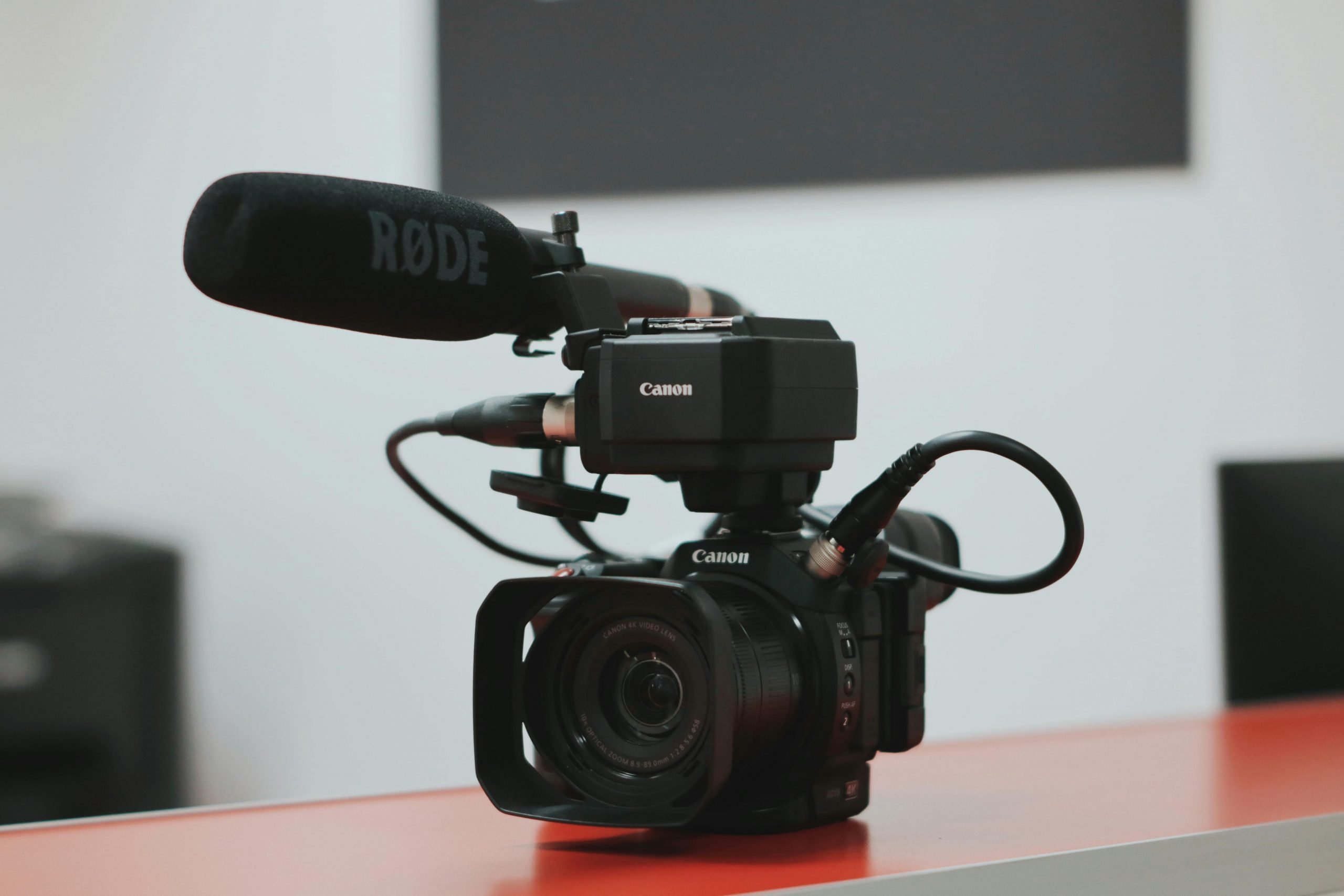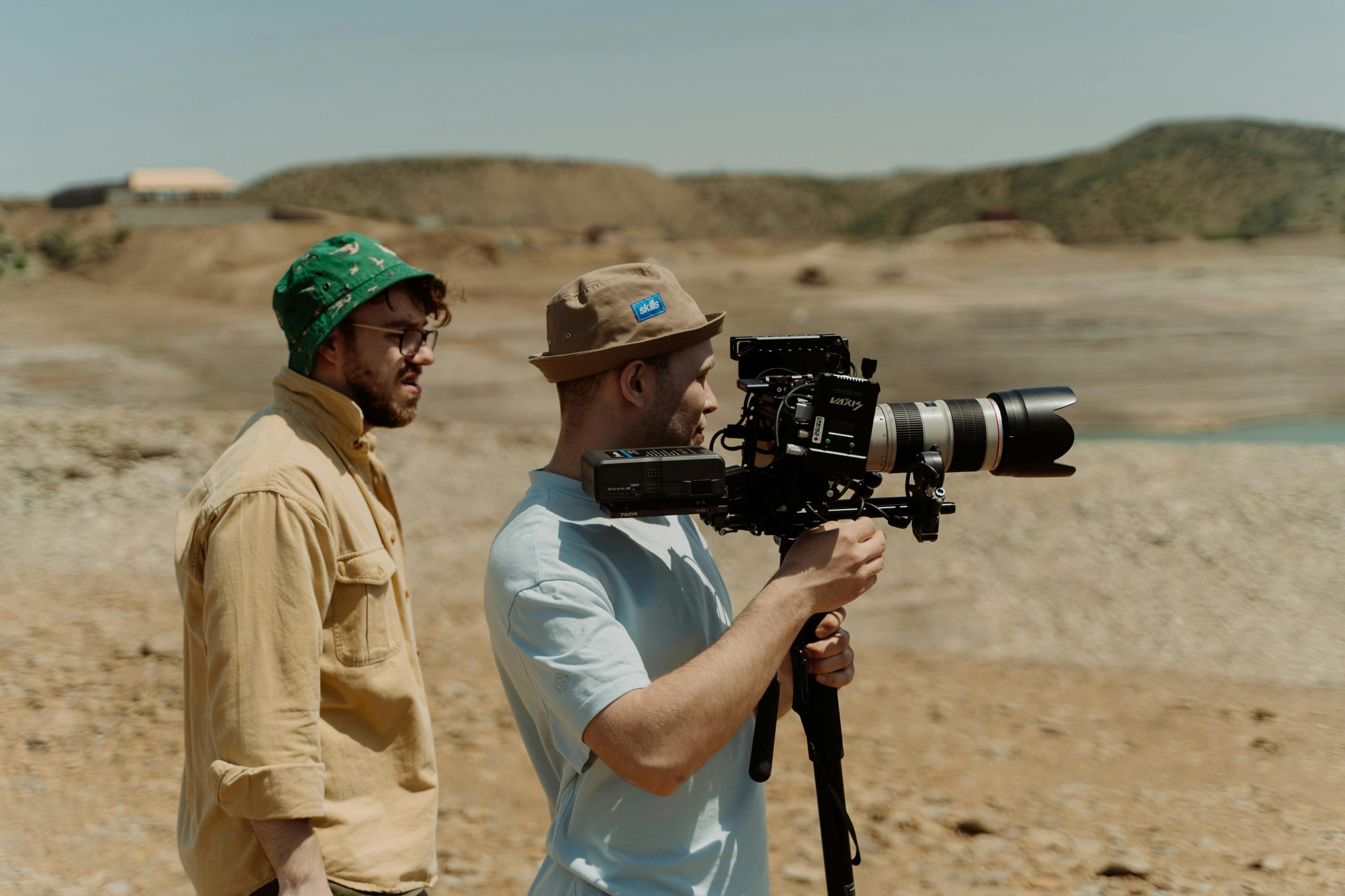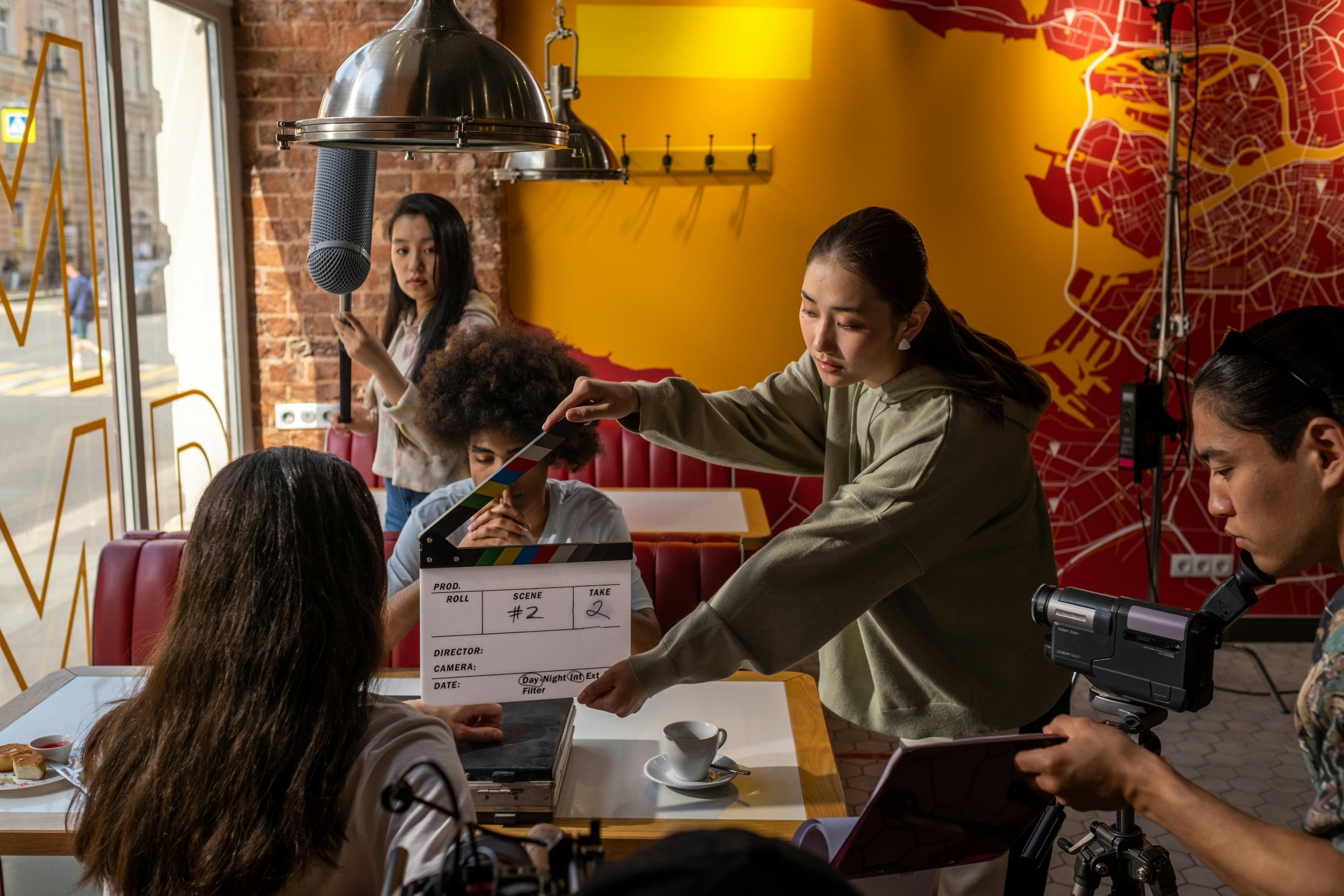
Filmmaking may seem like a dream job reserved for Hollywood directors, but the truth is—anyone can become a filmmaker with the right mindset, tools, and dedication. Whether you want to create short films, documentaries, or feature-length movies, this step-by-step guide will walk you through the basics of how to become a filmmaker, even if you’re starting with zero experience.
Let’s break it down in a simple and clear way.
Step 1: Learn the Basics of Filmmaking
 The first step to becoming a filmmaker is learning the key elements of film production. These include:
The first step to becoming a filmmaker is learning the key elements of film production. These include:
- Storytelling: Every great film starts with a story. Practice writing short scripts or outlines for ideas you’re passionate about.
- Camera Work: Understand camera angles, movements, and framing. Try using your smartphone or a basic camera to experiment.
- Sound: Bad sound can ruin a good film. Learn how to record clean audio and understand the basics of microphones and editing.
- Lighting: Lighting sets the mood and tone of a scene. You can use natural light or inexpensive LED lights to practice.
- Editing: Learn how to cut your footage together. Free software like iMovie, DaVinci Resolve, or HitFilm is great for beginners.
You can start learning these skills through YouTube tutorials, online courses, or local workshops.
Step 2: Watch and Study Films
One of the best ways to learn filmmaking is by watching movies like a filmmaker. Don’t just enjoy the story—pay attention to how it’s told.
Ask yourself:
- How did the director build tension?
- What camera angles were used?
- How did the music change the emotion of a scene?
Try watching films from different genres and countries. Take notes and think critically. You’ll start to notice techniques you can apply to your own work.
Step 3: Start Making Short Films
Don’t wait for permission—start filming! Use your phone or a basic DSLR camera. Keep it simple. A short film could be just one person talking, a single location, or a silent scene with only visuals.
Tips for making your first short film:
- Keep it short: Aim for 1–3 minutes.
- Write a script: Even a simple outline helps keep your idea focused.
- Use what you have: Don’t worry about fancy locations or expensive props.
- Work with friends: Ask classmates, neighbors, or family to help out.
- Edit and share: Post it on YouTube or social media to get feedback.
This is how many filmmakers get started. Every film you make teaches you something new.
Step 4: Build a Basic Gear Kit
You don’t need to buy the most expensive camera to make good films. Start with basic, affordable tools:
- Camera: A smartphone, DSLR, or mirrorless camera
- Tripod: Keeps your shots stable
- Microphone: A simple lav mic or shotgun mic for better sound
- Lighting: Use window light or invest in budget LED lights
- Editing software: Free or low-cost editing programs like DaVinci Resolve
As you grow, you can upgrade your gear based on your needs and style.
Step 5: Learn to Work with a Team
Filmmaking is a team effort. Learn to work with others in different roles:
- Director – guides the creative vision
- Producer – handles budget, schedule, and logistics
- Cinematographer (DP) – manages the camera and lighting
- Sound person – records and mixes audio
- Editor – cuts the footage into a final film
On small projects, you might fill all these roles yourself. But learning to collaborate is key to bigger, more professional productions.
Step 6: Study or Attend Film School (Optional)
Many successful filmmakers never went to film school. However, formal education can offer benefits like:
- Structured learning
- Access to equipment
- Mentorship from industry professionals
- Networking with other aspiring filmmakers
If film school isn’t an option, look for free or low-cost online courses. Websites like Coursera, Skillshare, and MasterClass offer lessons from experienced filmmakers.
Step 7: Build a Portfolio
A filmmaking portfolio is your resume. It shows others what you can do. Include:
- Short films
- Script samples
- Commercial or music videos
- School or passion projects
Upload your best work to YouTube, Vimeo, or your own website. Keep it updated as you gain experience.
Step 8: Understand the Film Production Process
A key part of becoming a filmmaker is knowing the steps involved in creating a film:
- Pre-production: Planning, scriptwriting, casting, location scouting
- Production: The actual filming process
- Post-production: Editing, sound mixing, visual effects
- Distribution: Sharing your film with the world (film festivals, YouTube, social media)
Each step requires time and attention. Understanding this process will help you stay organized and professional.
Step 9: Network and Join Film Communities
Connect with other filmmakers, actors, and creatives. Join local film clubs, attend screenings, or participate in film challenges. Online forums and social media groups are great too.
Networking helps you:
- Find people to collaborate with
- Learn about film competitions
- Hear about freelance gigs or job openings
Never underestimate the power of a strong creative network.
Step 10: Keep Learning and Improving
Filmmaking is a lifelong learning process. Even professionals continue to study and evolve. Keep improving your skills by:
- Reading books about film directing, screenwriting, or editing
- Watching behind-the-scenes videos
- Volunteering on other people’s film sets
- Entering film festivals to get real-world feedback
Every project, no matter how small, helps you grow as a filmmaker.
How Long Does It Take to Become a Filmmaker?
There’s no one-size-fits-all timeline. Some people land directing jobs within a couple of years. Others take a decade to break into the industry.
If you’re asking how long does it take to film a movie, the answer also varies. A short film might take a weekend. A feature-length movie could take several months to film and many more to edit.
The key is to stay consistent and keep making films. Every shoot, edit, and script brings you one step closer to your goal.
Final Thoughts
Becoming a filmmaker isn’t about waiting for the perfect time or having all the gear—it’s about taking action. Start small, learn constantly, and build experience one project at a time.
Whether your dream is to direct blockbusters, shoot documentaries, or create viral short films, this guide has given you the roadmap on how to become a filmmaker. The rest is up to you.
Lights, camera… action!


